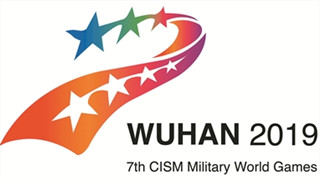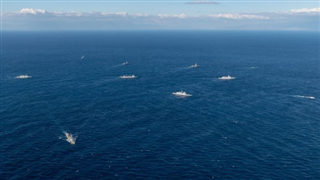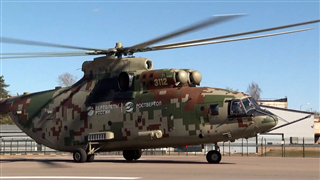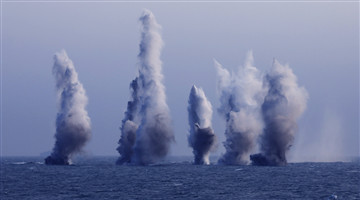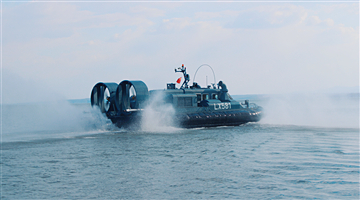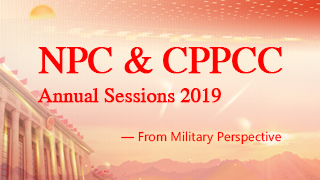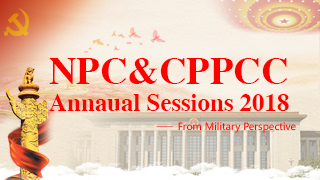
A People's Liberation Army (PLA) helicopter fires two rockets during live-fire drills on April 18 2018 in the Taiwan Straits. The drills were said to send a warning to "Taiwan secessionist groups" and the US. Photo: Xinhua
The influence of the Taiwan Relations Act (TRA) is gradually weakening and will become a burden for the US as the Taiwan question will be solved eventually, Chinese mainland analysts said on Wednesday, after the US and the leader of the Taiwan region called for strengthening ties over the 40th anniversary of the TRA.
US Deputy Assistant Secretary of State for Trade Policy and Negotiations David Meale arrived in Taiwan Tuesday, and is scheduled to attend the anniversary at the American Institute in Taiwan's (AIT) new complex on April 15, the Taiwan-based Central News Agency reported.
In response, Chinese Foreign Ministry spokesperson Lu Kang said at a routine press conference on Wednesday that China opposes official contact of any form between the US and Taiwan, and the visit by a US official is a severe violation of the one-China principle and US obligations under the three joint communiqués the US signed with China. "We urge the US not to make wrong practices," Lu said.
In a video teleconferencing speech given to US think tank Center for Strategic and International Studies on Tuesday, Taiwan regional leader Tsai Ing-wen urged the US to make it clear that protecting the security of Taiwan is vital to "the defense of democracy."
Mainland experts warned that the US should realize the TRA will become a serious burden to Washington when the mainland has no choice but to solve the Taiwan question militarily or the day China's reunification is realized.
China's reunification is certain, which is only a matter of time, and if the US strictly follows the Act, then the Act could draw the US into unnecessary conflicts with China when the reunification is realized or during the process of reunification, so weakening the Act's influence is a wise choice for the US, said analysts.
The TRA is meant to maintain US economic and trade interests with the island after the two sides ended their diplomatic ties. However, the TRA doesn't include definite promise to Taiwan or clear obligation of the US should military clash erupts between mainland and the island, despite allowing the US to sell defensive weapons to the island.
The TRA has offered an alleged domestic legal basis for the US to interfere in cross-Straits affairs, analysts noted. When the US follows the TRA, it will unavoidably challenge the bottom line of China by breaking the three joint communiqués and weaken the one-China principle.
From a practical point of view, the US tends to implement a "two China" policy in accordance with the TRA, Xin Qiang, deputy director of the Center for US Studies at Fudan University, said.
Weakening influence
Chinese analysts said that after 40 years, the influence of the TRA has been gradually weakened as China has the capability to exert its influence on regional affairs and cross-Straits situation doesn't depend on what the US says .
Xin believes the US will continue to abide by the TRA, including its promise to the island, such as selling arms to the island, and the US will also continue to remain ambiguous on the cross-Straits question.
But Jin Yi, an expert at the Institute of Taiwan Studies of the Beijing-based Chinese Academy of Social Sciences, said that the role of the TRA will be gradually weakened and the US will restrain itself on the Taiwan question. "In the end it is only a domestic law. Whether it will continue to exert influence on the cross-Straits situation depends on the US' strength."
China on Wednesday confirmed that two People's Liberation Army (PLA) fighter jets crossed the "middle line" of the Taiwan Straits on March 31, and the Taiwan Affairs Office of the State Council spokesperson Ma Xiaoguang said that it is a normal arrangement within the PLA's annual training program.
Ma said that China's sovereignty and territorial integrity have never been divided and no division is allowed, and safeguarding national sovereignty and territorial integrity is PLA's sacred duty as well as the fundamental interests of compatriots on both sides of the Straits.
China's Anti-Secession Law, adopted in 2005, has clearly stipulated that the state shall employee "non-peaceful means and other necessary measures" to protect China's sovereignty and territorial integrity. The wording is much more determined than the TRA's lines about protecting Taiwan.
"In the event Taiwan secessionist forces should act under any name or by any means to cause the fact of Taiwan's secession from China, or that major incidents entailing Taiwan's secession from China should occur, or that possibilities for a peaceful reunification should be completely exhausted," according to Article 8 of the Anti-Secession Law.
If the Chinese mainland decides to solve the Taiwan question militarily, whether the US will respond is unknown, Xin said. "Taiwan secessionists should be clear that they won't get an absolute security guarantee from the US under this circumstance, but might be bankrupted from purchasing expensive but useless US weapons, and this would only benefit arms dealers."
The US reportedly gave its tacit approval to Taiwan's request to buy more than 60 US-made F-16V fighter jets. But Time magazine reported on Monday that the Trump administration has put on hold the F-16V sale until it reaches a trade deal with China.



